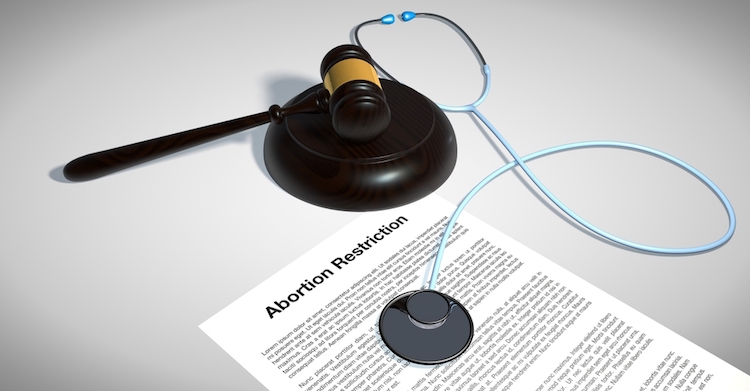Could abortion clinics be placed on federal land? Law prof who proposed it sees some risks

Image from Shutterstock.
Some Democrats and academics are proposing that the Biden administration place abortion clinics on land under exclusive federal control within states with laws that ban the procedure.
The Hyde Amendment prevents the federal government from spending federal money on most abortions. But the federal government could lease space to a private entity in exclusive federal enclaves to provide abortions, three law professors argue in a draft article that will be published in final form in the 2023 Columbia Law Review.
The argument could be bolstered if the U.S. Department of Health and Human Services issues a regulation about its authority over medication abortion, particularly on federal land. That would give abortion providers “a strong argument that they could prescribe and distribute abortion medication without fear of legal punishment while on federal land,” the draft article says.
But the federal-lands idea carries risks, one of the writers, Rachel Rebouché, a professor at the Temple University Beasley School of Law, told USA Today. She and her co-authors, David S. Cohen, a professor at the Drexel University Thomas R. Kline School of Law, and Greer Donley, a professor at the University of Pittsburgh School of Law, outlined the proposal and potential problems in their draft article.
The argument for allowing abortions in federal enclaves under exclusive federal jurisdiction is based on the Assimilative Crimes Act and federal prosecutorial discretion. That federal law authorizes federal prosecution when a person commits an act that is a crime in the state where federal land is situated but isn’t a crime under federal law. Federal prosecutors in abortion-rights administrations could decline to bring charges for abortions on federal land within anti-abortion states.
To prevent retroactive prosecutions, abortion-rights presidents could pardon providers for abortion-related crimes under the Assimilative Crimes Act during their administrations. But the protection wouldn’t apply to abortions performed after a new president is elected. Other potential problems include:
• It’s unclear which federal land qualifies as an exclusive enclave and which is subject to concurrent jurisdiction by states. Any determination “involves intense factual analysis relying on dated documents and often contested history,” the article says.
• The Assimilative Crimes Act covers acts on federal land but doesn’t apply to legal risks on state land. “This could subject providers, patients and helpers to state abortion criminal or civil law when they travel to or from federal land,” the article says.
• There is no federal law like the Assimilative Crimes Act that applies when states impose civil liability for aiding and abetting an abortion. But some separate statutes incorporate state civil laws, such as those providing for wrongful death and personal injury. That means that abortion providers would have to deal with the possibility of wrongful-death lawsuits, the article says.
When there is not a specific statute, the state law applies that was in effect at the time a state gave jurisdiction on the federal land to the United States. That means that state laws imposing civil liability for aiding and abetting an illegal abortion, such as the law adopted in Texas, would not apply.
Rebouché summarized her misgivings for USA Today.
“There’s a lot of worry about the logistics of protecting people who go on and off federal land, the legality of when and how federal law applies or it doesn’t apply,” Rebouché said. “It’s a novel proposal, but it’s also one where there’s a lot of risk.”



